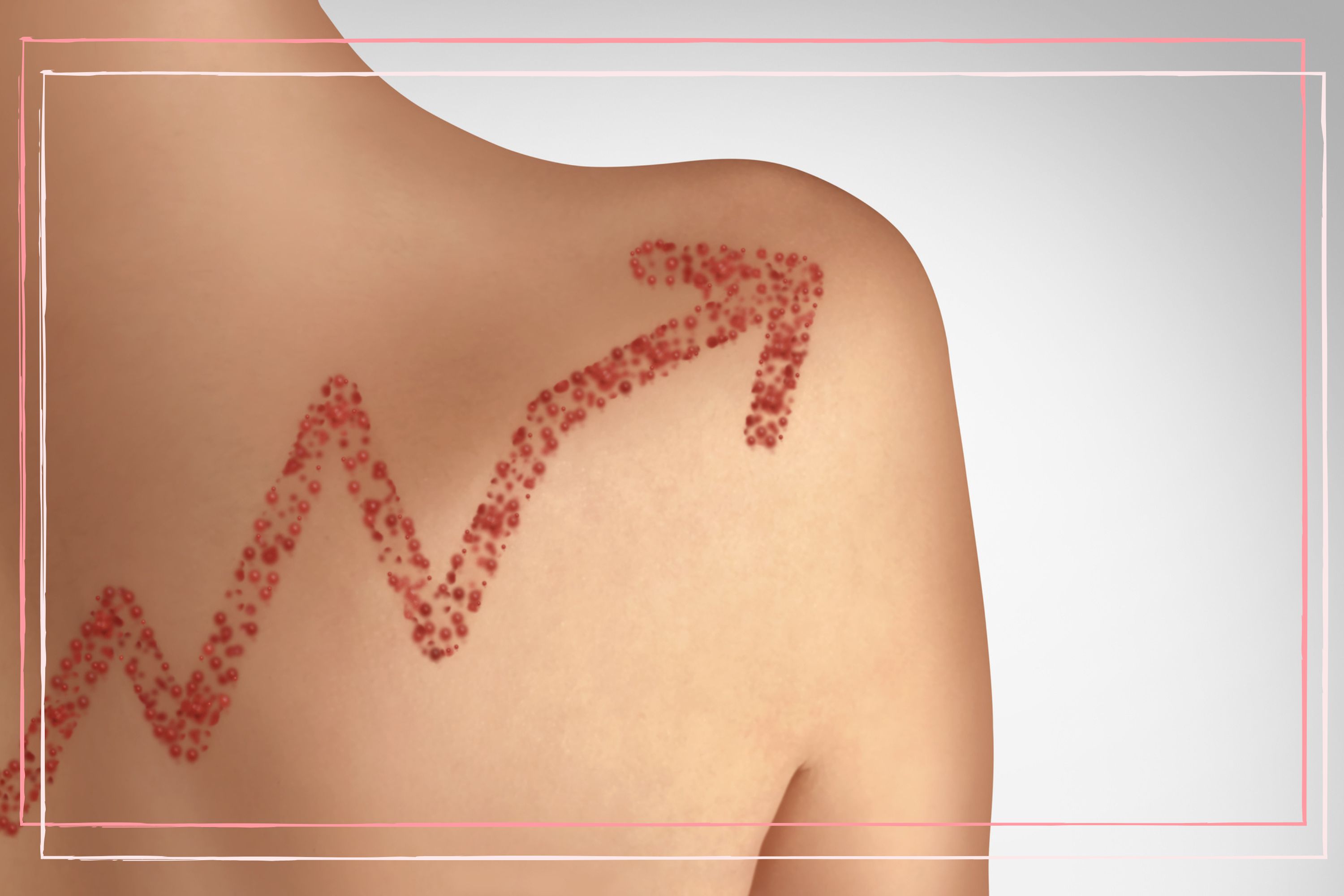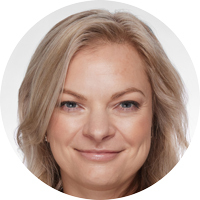Doctors share important advice for parents as resurgence of measles continues across England
Measles is a highly contagious infection which can cause serious health complications and it is currently on the rise again in the UK

Vaccination almost successfully wiped out measles in the UK seven years ago, but as the uptake of the MMR vaccine has begun to decline, cases are now rising around the country, putting children at risk.
Last year the UK Health Security Agency reported a resurgence in measles, with 368 confirmed laboratory cases in England. This resurgence, among young children under the age of 10 especially, has continued into 2024, with the latest data showing that the total number of confirmed measles cases since 1 October 2023 has risen to 733.
According to the NHS, one in every 15 children with measles will develop more serious complications. These can include ear and chest infections, fits, diarrhoea, encephalitis (infection of the brain), pneumonia and brain damage.
Meningitis, blindness and even death are also among the possible complications of measles and so it is recommended that all children, and unvaccinated adults, receive the MMR vaccine. The MMR (measles, mumps and rubella) vaccine is offered to all children for free on the NHS as part of the UK’s national immunisation programme and is the best way of preventing the disease among young children. Two doses will provide lifelong immunity to measles, mumps and rubella.
Dr Claire Merrifield (MRCGP), who is an NHS GP and medical director at health check-up firm Selph, explains, "Vaccination almost successfully wiped out measles in the UK in 2016 and 2017. Globally, there are still large outbreaks of the virus and as the uptake of the MMR vaccine has declined in the UK, children and young adults are at greater risk of contracting the disease."
Alongside Dr Merrifield, NHS GP Dr Alexis Missick (MRCGP) and NHS GP Dr Hana Patel (FRCGP) also shared their evidence-based advice with us about measles and answered some of the most common questions parents have about the highly contagious infection.
The information in this article is for general purposes only and does not take the place of medical advice. If you suspect your child has measles but haven’t had a diagnosis, speak to your GP immediately. If you've been in close contact with someone who has measles and you're pregnant, have a weakened immune system or you have a child under one, ask for an urgent GP appointment.
GoodtoKnow Newsletter
Parenting advice, hot topics, best buys and family finance tips delivered straight to your inbox.
NHS advice states that you should book an urgent GP appointment under the following circumstances:
- you think you or your child may have measles
- your child is under 1 year old and has come into contact with someone who has measles
- you've been in close contact with someone who has measles and you're pregnant or have a weakened immune system
- you or your child have a high temperature that has not come down after taking paracetamol or ibuprofen
- you or your child have difficulty breathing - you may feel more short of breath than usual
- your baby or young child is not feeding well, or taking less feeds or fluids than usual
- you or your child are peeing less than usual (or your baby has fewer wet nappies)
- you or your child feels very unwell, or you're worried something is seriously wrong
As a parent, you know your child better than anyone and you should always trust your own judgement. If you are worried about your child, contact your GP or call the NHS on 111. In a medical emergency, call 999.
NHS advice states that you should call 999 or go to A&E if you or your child has measles and:
- have a seizure (fit)
- severe difficulty breathing - you're gasping, choking or not able to get words out (babies may make grunting noises or their stomach may suck under their ribcage)
- are unable to stay awake - cannot keep their eyes open for more than a few seconds
- suddenly become confused - your child may be very unsettled, behaving differently, or crying non-stop
- your child is limp, floppy or not responding normally - their head may fall to the side, backwards or forwards, or they may find it difficult to lift their head and focus on your face
- a rash that does not fade when you press a glass against it
- a stiff neck, or find light uncomfortable or painful
What is measles?
Measles is a viral infection which is easily spread to other people when an infected person breathes, coughs or sneezes. It usually starts with symptoms similar to a cough and cold such as a high temperature, sneezing, runny nose and cough. However, the most obvious symptom of measles is the rash that will appear a few days after the first symptoms. The rash will usually start on the face before spreading to the rest of the body.
Dr Patel says, “The rash is made up of small red-brown, flat or slightly raised spots that may join together into larger blotchy patches and usually first appears on the head or neck, before spreading outwards to the rest of the body and can be slightly itchy for some people.” Your child may also have small, white spots on the inside of their cheeks and lips.
Dr Merrifield explains, "Children with measles will typically be unwell for around a week with a fever, cough, blocked nose, itchy eyes and a rash.” See advice from the NHS for a full list of measles symptoms and pictures of the measles rash.
How contagious is measles?
Measles is very contagious. Dr Missick explains, "Someone can catch measles by being in a room that someone with measles has been in, even two hours after that person has left the room."
The highly infectious airborne disease is spread through the respiratory droplets released when a person talks, sneezes or coughs. Dr Merrifield explains, "One person can infect up to 90% of the people who come into contact with them unless they are immune. Measles is contagious from 4 days before the rash develops until around 4 days after the rash has appeared. The virus can survive in the air for up to 2 hours after an infected person leaves the area."
Dr Patel says, "Most people show symptoms after about 10 days of being exposed to measles (this is called the incubation period)." She says you will need to self-isolate if you’re showing symptoms.
The NHS states, "Anyone can get measles if they haven’t been vaccinated or they haven’t had it before. It’s most common in young children."
Can newborns get measles?
Dr Missick says, "If the mother is immune to measles, her maternal antibodies will be passed on during pregnancy. However, this protection reduces over time, meaning the baby should get vaccinated when possible." The first childhood MMR vaccine isn’t given until an infant is 12 months old so there is a risk that a newborn baby could catch measles if their parents or siblings are unvaccinated and catch the virus.
Dr Merrifield says, "As their immune system is not fully developed, it’s important to get medical advice immediately if measles is suspected in a newborn or a newborn has come into contact with someone with measles."
The NHS advises getting an urgent GP appointment if your child is under one years old and has come into contact with someone who has measles.
What should I do if my child has measles?
Ask for an urgent GP appointment if you think you or your child may have measles. As measles can be spread easily you should call your GP or doctor’s surgery first before taking your child in, as the surgery may suggest a phone consultation first.
After speaking to your GP or a doctor you should also inform your child’s school or nursery immediately. Measles is incredibly contagious, and so you will need to keep your child at home until they have made a full recovery. Newborn babies, pregnant women and people with a lowered immune system should not be exposed to the illness, so keep your child away from anyone at risk in your household (such as younger siblings and babies) while you are isolating.
If you are looking after a child who has measles you should wash your hands often with soap and warm water to try and prevent the spread of the infection. The NHS also recommends keeping cutlery, cups, towels, clothes and bedding used by a child infected with measles separate from other members of the household. This is especially important if anyone in your household is vulnerable or unvaccinated.
It’s also important that you inform anyone who has come into contact with your child recently. This is especially important for the vulnerable groups of people we’ve mentioned above - such as anyone who is pregnant, babies and young children or anyone with a weakened immune system.
What can I do to soothe a child with measles?
After seeing your GP, there are things that parents can do to help soothe their child if they have measles. Your child might be feeling quite poorly so they will need a lot of extra cuddles and care. Dr Missick says it’s important to make sure they stay well hydrated and give them paracetamol or ibuprofen to keep their temperature down.
Your child will probably be ill for around a week or up to 10 days with the cold symptoms and rash. Dr Merrifield says, "If their eyes are particularly sticky, you can use warm water and clean cotton wool to wipe from the inside to the outside of the eye."
The NHS also suggests closing the curtains to help reduce symptoms of light sensitivity in anyone who is unwell.
When can a child return to school or daycare after measles?
Your child should get better after a week but, of course, every case is different. Even once the rash has faded, your child may still be very tired and need a bit more time to recuperate at home.
Dr Merrifield says, "Children are advised to stay off school from 4 days before the onset of the rash and for a full 4 days after the rash starts. It’s advisable to wait for your child to make a full recovery before sending them back to school as they are more likely to get other infections while still recovering from the measles infection."
Nurseries and schools will have their own restrictions and protocols when it comes to measles so it’s always worth checking with them after getting advice from your GP.
Measles and pregnancy
If you’re unvaccinated and catch measles while you’re pregnant it can harm your baby. There is a risk of miscarriage or stillbirth, premature birth (before week 37 of pregnancy) and low birthweight. Tell your GP immediately if you are unvaccinated and think you have been exposed to the measles virus, even if you don’t feel unwell. Dr Patel says, "Your treatment for measles will depend upon how unwell you are and when you first started having symptoms. If you need to be admitted to hospital you will be cared for in a side room to keep other patients safe."
It’s possible to have a blood test to check if you have antibodies and immunity to measles but you cannot receive the MMR vaccine during your pregnancy because it is a live virus vaccine.
Dr Merrifield says, "Measles can be very dangerous in pregnancy. Seek immediate medical advice if you are pregnant and caring for a child with suspected measles. There are some medications that may be advised if you have been exposed to measles while pregnant to reduce the risk of pregnancy complications."
The NHS website states: "It's important to get medical advice if you're pregnant and have been in close contact with someone who has measles."
How can I prevent measles?
Having the MMR vaccine is the best way to prevent measles. It is given in two doses - the first dose is given at 12 months old and the second is given after the child is 3 years and 4 months old.
"If someone has missed a dose or is unsure if they have had any vaccinations, the vaccine can be given at any age. Parents and guardians can check their child’s red book for their vaccination records," the UK Health Security Agency says.
It adds, "Pregnant women or people with weakened immune systems should not have the vaccine. If they think they have had contact with someone with measles they should speak to their GP or midwife for further advice."
Speak to your GP if you have any questions about both the vaccine and measles.
Doctors answer frequently asked questions about measles
If my child has measles, how can I prevent the spread?
A child with measles can spread the infection in the 4 days before the rash appears and once they have the rash, they can still spread it for another 4 days. This means you will need to keep your child at home to prevent the spread and Dr Missick says, "They should also avoid close contact with babies and anyone who is vulnerable, such as pregnant people and those with weakened immune systems."
To help prevent the spread of measles throughout your household, make sure everyone is washing their hands often with soap and warm water, ensure tissues are used for coughs and sneezes and thrown away immediately after use, and keep everyone’s cutlery, cups, towels, clothes and bedding separate, washing them at a high temperature (60 degrees celsius) after use.
Do parents have to isolate if their child has measles?
If you are vaccinated against measles then you do not need to isolate if your child has the infection. However, Dr Missick says, "If the parent isn’t immune, they should monitor themselves for symptoms and self-isolate for the incubation period." Dr Merrifield says if you are unsure of your vaccination status you should speak to your GP.
Can siblings go to school if one has measles?
Dr Merrifield says if other children in the household are unvaccinated they will be at high risk of developing measles because of how contagious it is. She says they should "self-exclude from school for the incubation period of the virus" (approximately 10 days). However, Dr Missick says that if the sibling has had their MMR vaccines they should be able to go to school as normal, even if their sibling is currently infected, “If your child’s sibling is immune they should not be able to pass measles on and so won’t need to isolate." However, it’s always best to speak to your GP and your child’s school if you’re unsure of what to do.
Do schools have to report measles?
Dr Merrifield says, "In general, whoever suspects or confirms a diagnosis of measles should report the infection to the Director of Public Health and the local authority. It’s important that schools are aware if your child has a measles infection as they need to take action to protect any vulnerable or unvaccinated students or staff."
Is it OK to bathe a child with measles?
Yes, a bath is fine for a child with measles. Dr Merrifield says, "A lukewarm bath might be soothing if the child has a fever. If they have a rash it’s likely to be itchy."
Can a child catch measles twice?
It is possible for a child to catch measles twice, but it is very unlikely. Dr MIssick says, "Once your child has had measles, they will build up immunity to the virus, making it very unlikely that they will catch it again."
What is the difference between measles and chickenpox?
Dr Merrifield says although milder cases of measles may have some similarities to chickenpox, measles is a much more contagious and a much more serious disease.
"Chickenpox is usually a mild condition in healthy children but can cause more serious issues in pregnancy or in people who have a weak immune system," she explains. "The complications of infection with measles can be severe. It can cause pneumonia, seizures, blindness and, rarely, brain damage and death."
Disclaimer
The information on GoodTo.com does not constitute medical or other health advice or diagnosis and should not be used as such. Although GoodtoKnow consults a range of medical experts to create and fact-check content, this information is for general purposes only and does not take the place of medical advice. Always seek the guidance of a qualified health professional or seek urgent medical attention if needed.
Our experts

Dr Hana Patel is a versatile and experienced general practitioner in family medicine, and a life and mental health coach based in the Southeast London area. She first received her medical degree in 2005 from The University of London, and continued to further her medical qualifications through rigorous trainings and degrees. Dr Patel has trained with institutions such as King's College London, University of London, and University of Kent. In 2010, she received her qualification from The Royal College of General Practitioners (RCGP).

Alexis is an experienced General Practitioner (GP) having worked over 10 years in the NHS and 6 years internationally, mostly the Caribbean - namely Turks and Caicos where she is originally from. Alexis' approach in general practice is to holistically treat and empower patients via patient education, to share in their journey to better physical health.

Dr. Claire Merrifield is an entrepreneur in the medical industry working on creating a new way to approach healthcare and wellness at Selph. She trained as a General Practitioner at Imperial College Healthcare Trust and worked as an NHS GP in central London. She trained in medicine as a graduate at Imperial College London and prior to her medical training she completed a PhD at Imperial College looking at the impact of nutrition and probiotic supplementation on metabolism and the developing immune system.

Kat has been a digital journalist for over 15 years after starting her career at Sky News where she covered everything from terror attacks to royal babies and celebrity deaths. She has been working freelance for the last five years and regularly contributes to UK publications including Stylist, ES Best, Woman&Home, Metro and more.